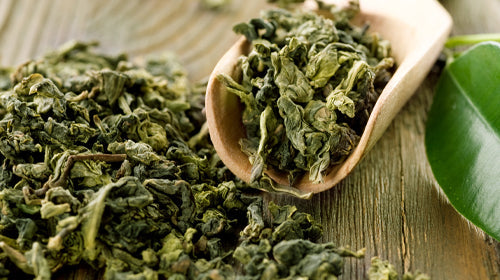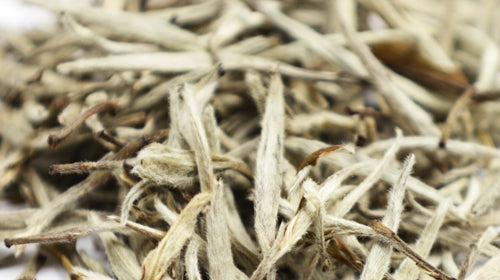Tea is much more than a luxury item. It's a source of highly effective antioxidants that can protect your cells from oxidative stress. High-quality green tea, white tea, and oolong tea, in particular, contain numerous secondary plant compounds that act as natural shields against free radicals in the body. In this article, you'll learn what antioxidants are, how they work in tea, and why permaculture tea is a particularly valuable choice.
What are antioxidants?
Antioxidants are protective substances that neutralize free radicals in the body. Free radicals are produced every day – through metabolic processes, UV radiation, air pollution, stress, or an unhealthy diet. When they get out of hand, we speak of oxidative stress, which is associated with premature aging, inflammation, and many chronic diseases.
Antioxidants help stop this process. They prevent cell damage, protect DNA, and promote tissue regeneration.
Why is tea such a good source of antioxidants?
Tea made from Camellia sinensis—green tea, white tea, oolong tea, and black tea—is particularly rich in antioxidants. The most important ones include:
Catechins, especially EGCG (epigallocatechin gallate): They have strong antioxidant, anti-inflammatory and cell-protective effects.
Flavonoids: These plant substances stabilize blood vessels, reduce oxidative stress and strengthen the immune system.
Theaflavins and thearubigins: These are produced during fermentation (e.g. in black tea) and also exhibit antioxidant properties.
Vitamins such as C and E: Contained in small amounts, but important for the holistic antioxidant effect.
These substances are present in large quantities and in their natural form, especially in high-quality green tea – they are highly bioavailable and contain no artificial additives.
How do the antioxidants in tea work in the body?
The antioxidants in tea work on several levels:
They neutralize free radicals before they can attack cells.
They reduce silent inflammation in the body.
They promote the activation of the body's own protective systems, for example through the NRF2 signaling pathway.
They support the liver in detoxification and ensure a stable internal balance.
Studies show that regular tea consumption can reduce the risk of cardiovascular disease, type 2 diabetes, and certain neurodegenerative diseases. These effects are attributed, among other things, to its antioxidant properties.
What makes permaculture tea particularly valuable?
At Growing Karma, we rely on genuine permaculture tea—grown in living soil, without pesticides, and with a natural ecosystem of wild plants, insects, and soil life. This has not only ecological benefits, but also health benefits:
Plants produce more secondary plant compounds, including catechins and flavonoids, in response to natural environmental influences.
There are no pesticide residues that could act as an additional burden in the body.
The processing is gentle to preserve as many antioxidants as possible.
You get a tea that is rich in ingredients – directly from Germany, fresh, lively and clear in taste.
How much tea should you drink?
Just two to three cups of high-quality tea a day provide a noticeable antioxidant effect. Quality is key: loose tea, carefully processed, and, if possible, from controlled cultivation. The less processed a tea is, the more antioxidants are retained.
If you are sensitive to caffeine, you can opt for the second infusion variant – this reduces the caffeine content but retains many antioxidant ingredients.
Conclusion: Tea is a natural ally for your health
Antioxidants are a crucial component of a healthy diet. Tea provides them in a natural, effective form—especially when sustainably grown. These ingredients protect your cells, support detoxification, have anti-inflammatory properties, and help your body maintain balance.
With every sip of high-quality tea, you are not only doing something good for your body – you are also strengthening your mind and supporting a form of agriculture that focuses on life and diversity.




Leave a comment
This site is protected by hCaptcha and the hCaptcha Privacy Policy and Terms of Service apply.